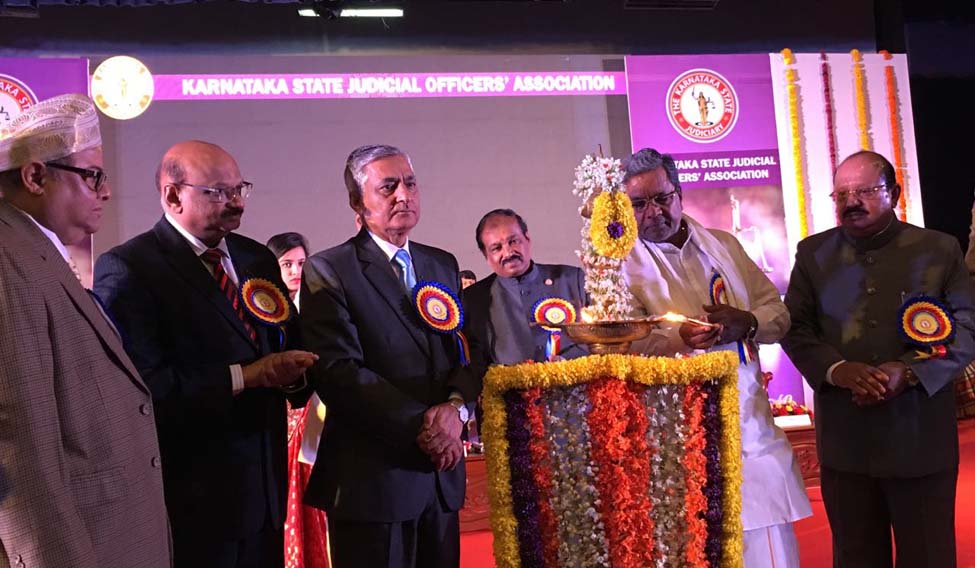India is transforming into a digital society. The judiciary must view this development most critically, but not cynically, warned Chief Justice of India Justice T.S. Thakur. He was inaugurating the 18th biennial state-level conference of judicial officers titled "Walking the extra mile for judicial excellence" held in Bengaluru on Monday.
"As we all know, India is going digital not only in day-to-day commercial transactions but in digitised infrastructure for governance too. The impetus to adopt digital payments will give rise to complex legal issues too. The country is witnessing a major shift from physical infrastructure to a digital infrastructure. A newly digitised India's vision is indispensable and we are part of this changing process."
"We should accept and learn digital technology -- from cloud computing to mobile applications. It is now possible to transact in a retail stores or avail government services by a click of the mouse or by swiping on the tab or smartphones. A digitised society would very soon need lawyers and judges who are capable of dealing with digital revolutions and legal dynamics of a changing digital world. We must view this development most critically not cynically," said Justice Thakur.
Admitting there were constraint, Justice Thakur said, "Slow justice is better than no justice at all. We need to work with these constraints. Delay in filling up vacancies in sanctioned posts, the delay in scaling up sanctioned strength and the increase in institutional cases have rendered the judicial infrastructure inadequate to deliver its constitutional mandate. But there is no reason to lose heart as we need to remain committed to the last man. Slow justice is better than no justice."
Chief Minister Siddaramaiah, exhorted the judicial lawyers to do their bit in reducing the pendency of cases. He noted that Karnataka had a pendency of 16.24 lakh cases as on November 1, 2016, which included 91,540 government-related cases. The state which had only 201 courts in 1972, 459 in 1997, now has 1,300 courts.
"India has one of the best written Constitutions, but there are some hassles in its application and implementation. A harsh truth is also that the litigations are on the rise, and so are the pendency of cases in courts. The role of judicial officers is most sacrosanct. They can help reduce the number of cases appearing before the court. If lawyers can attend the courts punctually, use Lok Adalats for mutual settlement, they can save precious court time," said Siddaramaiah.
"Our government increased the budget allocation for the Department of Law and Justice from Rs 574 crore in 2014-15 to Rs 671 crore this year," added the chief minister.
Law and Parliamentary Affairs minister TB Jayachandra said, "Of the 1,300 courts that are sanctioned, 941 are functional. Over the last three years, 892 court buildings have been done and 220 judicial officers quarters have been built. All courts have been computerised and linked. We will fill up 4,334 posts of all cadres -- one fifth every year."





